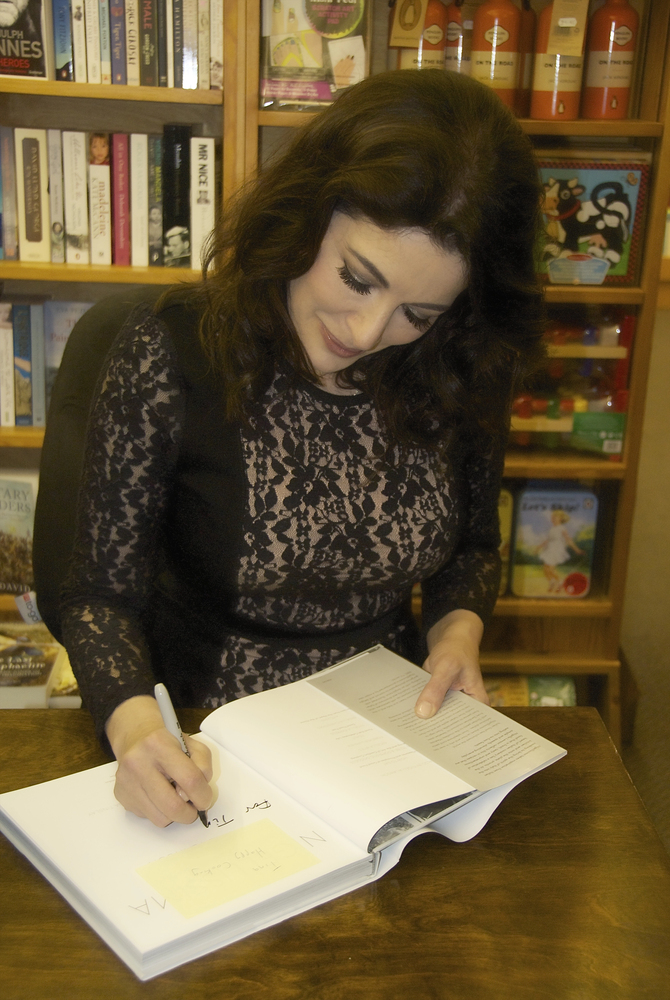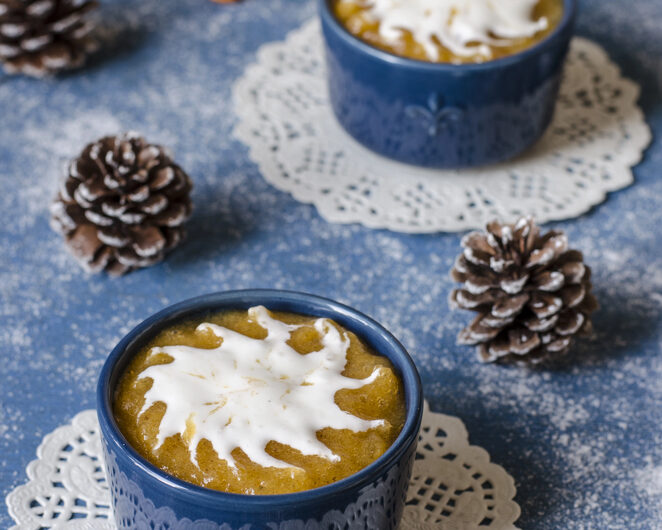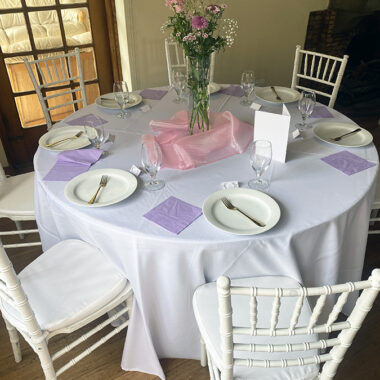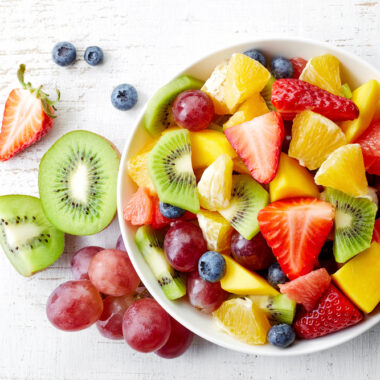Today we’ll be continuing our chef series by talking about Nigella Lawson and some tips from her. She’s an English food writer who cooks on tv. She’s got bestselling cookbooks and cooking shows, but she has a very approachable, relatable style of home cooking. She’s not on another planet like a really gourmet chef, but somebody who’s very good at what she does, and she teaches you in a way that helps you feel like you can cook better. So, let’s talk about some things that she’s spoken of and that reflect her cooking philosophy.
Number one – don’t apologize for shortcuts. Home cooking should be a pleasure. It should be enjoyable, so there’s no shame in using shortcuts. For example, it’s okay to buy pre-chopped garlic, or use ready-made pastry, tinned beans, or tomato puree in a jar – anything that makes it easier for you. When we’re cooking at home, our busy lives are crazy with work and children and all the things we do, so we shouldn’t feel like we have to cook everything from scratch.
Food should be for nourishment and for joy, and we should do it in whatever way is possible, whatever way we enjoy, and whatever way makes it easiest for us. It’s not a test of virtue, but a pleasure. Do whatever you can find that makes it easier for you, whether it’s using pre-cut meat, pre-cooked sauces, or ingredients that are pre-chopped. I like to buy coleslaw pre-chopped rather than chop a cabbage. Things like that are helpful, so we shouldn’t feel bad about them.
Number two – cook with your senses. Nigella emphasizes the importance of touching your ingredients when you’re chopping them or washing them, and enjoying the smell and even the sounds of cooking. It’s not just about timing or about measurements, but about enjoying the sizzle, smelling the aroma, and feeling that beautiful dough. Then as you cook, trust your instincts, and learn to be in touch with all of your senses and what you’re feeling, so that you can cook your best food.
If you taste as you go, you’re far more likely to be in tune with what you’re cooking, and to make the food taste its absolute best. Sometimes you can grab a spoon and taste your sauce, stew, soup, or whatever you’re cooking, and then think about what might go well with it. Smell some herbs or a little bit of lemon, and see if you think it would go well in what you’re cooking. Then add that and taste it again. Add some Parmesan, add some pepper, some onion powder, some paprika, some basil that’s been chopped up, or anything that you think will go well with what you’re cooking.
If you don’t know where to start, search for some ideas on the internet, and then smell the things that are suggested and add them. Train your palate and train your sense of smell to know what’s needed when you’re cooking. Then, when you eat the food later, perhaps you’ll even get a different perspective, and you can think okay, next time I’ll try this, or try adding less of this, or more of that, and you’ll develop your ability to cook delicious food.

Number three – lemon juice and lemon zest are game changers. Nigella loves to boost the flavor of both sweet and savory dishes with lemon zest or lemon juice. Just a squeeze of lemon at the end of cooking can brighten a dish. Chicken, fish, and things like that work really well with some citrus like lemon. Desserts do as well. Whether it’s a lemon flavoured cheesecake, a lemon meringue dessert, or ice cream with a little bit of lemon olive oil on it, lemon will make it amazing. Add lemon juice or lemon zest whenever you can.
Number four – seasoning is everything, especially salt. We’ve heard this from other chefs too, and that shows how important it is. Layering salt is something you should do, not just adding it at the end. Salt doesn’t just add saltiness, but it brings out flavor; it enhances the flavor that’s already there. So, add salt and then taste and adjust as you go.
Number five – use room temperature ingredients, whether it’s for baking or cooking. Meat does well if you can let it come to room temperature before cooking it. Take it out of the fridge about half an hour before you need it, and then it’ll be less likely to become tough when you cook it. It’s always good to bring your food to room temperature. It’s the same with baking, whether it’s eggs, flour, or butter. Let them come to room temperature, and then they’ll perform well when you use them.
Number six – rest your meat after cooking. You need to rest your meat for the same amount of time as you cook it so that it can reabsorb and redistribute the juices. Then the meat will be less dry, and it will have cooked a little further, so it won’t be overdone, and it’ll definitely be juicier. So, whether you’re cooking a steak in the oven or on the stove top, whether you’re cooking roast chicken or anything like that, let it rest before eating it.
Number seven – use your freezer like a pro. Nigella encourages making your meals ahead of time and freezing them, making sure you’re labeling everything really clearly. Freeze your sauces like béchamel sauce and tomato sauce, perhaps flat in bags to save space, and so that they can defrost quickly and are ready for use. She recommends doing this when you have times that are less busy, and then during crazy times, you can pull things out the freezer and use them.
Number eight – put a spoonful of sugar in savory dishes. Nigella will occasionally add a little bit of sugar to a tomato sauce or a spicy dish just to balance the acidity. Perhaps she’ll add a bit of maple syrup just to round out the flavor, not to make it sweet, but harmonious, as she says.
Number nine – garlic and oil need gentle heat. When you’re sautéing garlic, you need to use cold oil in a cold pan, and then bring it up to heat slowly so that the garlic doesn’t burn, and if you’re doing onion and garlic in a dish, you need to cook the onion first and then add the garlic near the end. If you’re doing the garlic in oil, then this slow, cold process gives the garlic time to infuse the oil and to add flavor. So, whatever you’re doing with garlic in your dish, start with it cold, and don’t take too long over the cooking of the garlic. Number ten – butter is flavor, so don’t be afraid of it. Nigella never shies away from using real butter. She believes that it adds unmatched flavor and richness. You can cook it with steak, vegetables, mashed potatoes, or sauces. A little real butter goes a long way. Nigella says you should use it where it matters. Don’t go for anything fake like margarine or seed oils; just go for good, wholesome butter.
Number eleven – cook once, eat twice. This goes along with the freezer idea. Make meals that can stretch into leftovers. Then you can have them for lunch the following day, or they could be put in the freezer to be a meal for another night. Roast chicken can become a sandwich, a soup, or a chicken salad the following day. This saves time and reduces waste.
Number twelve – Nigella says that stirring can be therapeutic. It’s good for you to be relaxing, slowing down, and enjoying repetitive kitchen tasks like whisking, stirring risotto, stirring soup or stew, or folding a batter. She sees cooking as a soothing, mindful act, not just a means to an end. Rather than rushing, slow down and enjoy the process.
Number thirteen – she likes to use ice cream as a canvas. She’s known for using ice cream as a dessert base. She’ll soften some vanilla ice cream and then stir in things like espresso, crushed biscuits, or berries. She’ll make a quick, fancy dessert with minimal effort in this way; something that’s unusual, but uses such simple ingredients.
Number fourteen – Nigella says that you should keep flavor bombs in the pantry. Try to have a well-stocked pantry with some staples that are full of flavor, things that you can add to really enhance a dish. This can be things like anchovy paste, preserved lemons in a jar, capers, dijon mustard, or harissa. A spoonful of one of these can elevate even the simplest dishes. A jar of peppers, some chutney, and any kind of sauces that you enjoy are really helpful to have in your pantry, and have ready to add as an ingredient when you need to.
Number fifteen – cooking should be a pleasure, not a chore. Nigella encourages you to enjoy your cooking, and to let it be intuitive. She believes that recipes are guides, not strict rules. Comfort in the kitchen matters, your intuition matters, and enjoying the process matters. You can taste whether you’ve enjoyed making it in the food. Don’t worry about perfection – have confidence, and you’ll learn to make amazing food. Perfection is overrated.
There’s something about the act of cooking that’s so nourishing to the soul, even if the end result isn’t perfect – that’s what she says. It’s still valuable. Often she’ll welcome mess, improvisation, or even failure as part of the kitchen experience.
Last of all, number sixteen – comfort food is valid food. Nigella is famous for unapologetically embracing comfort food like rich chocolate cakes, slow cooked stews, and pasta dishes. She rejects the idea that indulgent food is somehow shameful. She says “I don’t believe in low fat cooking.” She believes in cooking that feeds the body and the soul, and that makes you feel good emotionally and physically. You can enjoy it with your family around the table. You can invite guests, and bless people with your love of food.
So, I hope this has inspired you as much as it’s inspired me, and I hope that you go into your next cooking session looking forward to it, and being relaxed so that you can enjoy the process.





